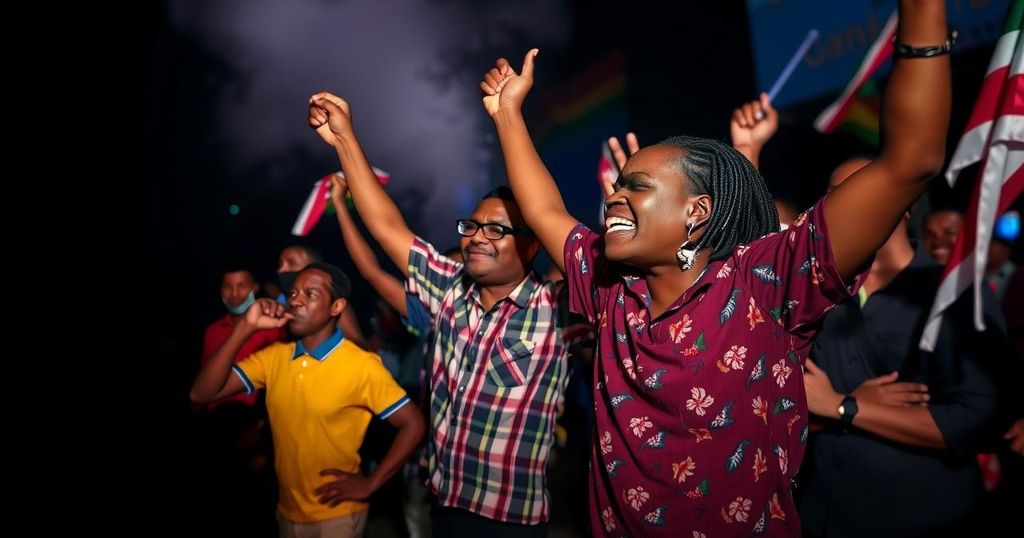Mauritius Opposition Coalition Wins Parliamentary Elections by Landslide

The opposition coalition in Mauritius secured a landslide victory in the recent elections, claiming all parliamentary seats and ending Prime Minister Pravind Jugnauth’s tenure. Jugnauth conceded defeat as the opposition, led by Navin Ramgoolam, achieved significant electoral success amidst allegations of corruption against the ruling party.
Mauritius has witnessed a significant political shift as the opposition coalition has emerged victorious in the recent elections, securing all available seats in the national parliament. This outcome marks a decisive rejection of the ruling government, led by Prime Minister Pravind Jugnauth. The election results, released incrementally on November 11, revealed that Jugnauth’s coalition did not win any of the 62 directly contested parliamentary seats, a stark contrast to the opposition’s overwhelming success across all 21 constituencies. In his concession speech, Prime Minister Jugnauth acknowledged the inevitable defeat of his Militant Socialist Movement coalition, recognizing that the electorate had opted for a change in leadership. The election will reinstate Navin Ramgoolam as Prime Minister, who previously held the position from 1995 to 2000 and again from 2005 to 2014. This election follows a challenging term for Jugnauth, marked by corruption allegations that surfaced through leaked recordings involving prominent political figures. As per initial results, the opposition has claimed victory in all announced seats, despite official results for two seats from Rodrigues Island still pending. Following this election, the total parliamentary representation will rise to 70, including eight additional lawmakers nominated by the Electoral Supervisory Council. With over one million registered voters, this election signifies the 12th democratic process since the nation gained independence from the United Kingdom in 1968.
Mauritius, located in the Indian Ocean, has long been recognized as one of Africa’s most stable democracies. Since gaining independence from Britain in 1968, the country has successfully developed its economy, primarily supported by finance, tourism, and agriculture. The recently concluded elections reflect an essential moment in the nation’s political landscape, as the electorate has decisively opted for change in government following the controversies surrounding Prime Minister Jugnauth’s administration, including corruption allegations stemming from leaked private recordings.
In conclusion, the resounding victory of the opposition coalition in Mauritius represents a pivotal moment in the country’s political history, highlighting an electorate eager for change. As Navin Ramgoolam prepares to return as Prime Minister, the election results underscore a substantial decline in public confidence in the ruling coalition amidst corruption controversies. Mauritius continues to illustrate the dynamics of a stable democracy, reflective of its enduring political evolution.
Original Source: apnews.com







